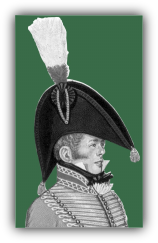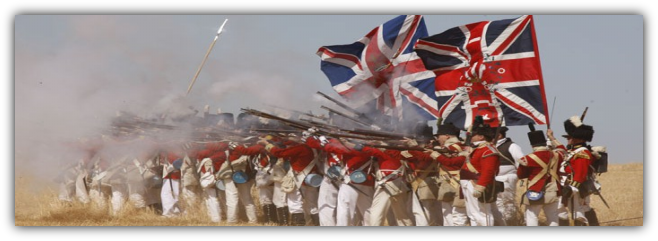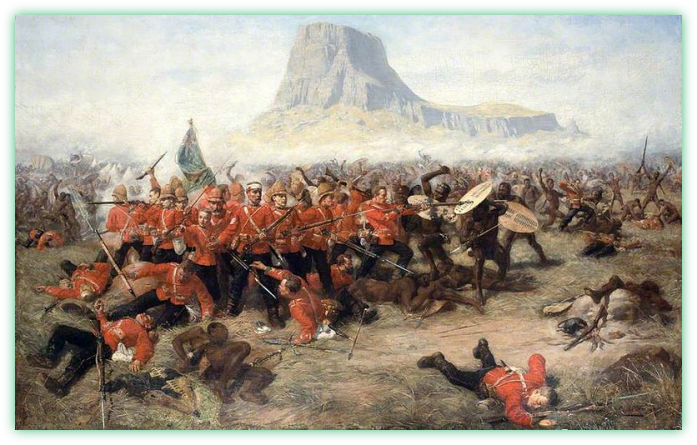Nick Lipscombe ~ Historian, Tutor, Author & Tour Guide
Nicolas (Nick) Lipscombe MSc, FRHistS is a military historian specialising in the Napoleonic Wars and the English Civil War (Wars of the Three Kingdoms). His first book, An Atlas and Concise Military History of the Peninsular War was published in 2010 and was selected as the Daily Telegraph (History) Book of the Year. He is considered a world authority on the battles and battlefields of the Iberian Peninsula and Southern France 1807-1814. In 2020 he completed his second major historical work, the Atlas and Concise History of the English Civil War (War of the Three Kingdoms) 1639-51, which was selected as a runner-up for the prestigious Templar Medal. The same year his work on Wellington's Guns was recognised by the Royal Artillery, and he was presented the Alfred Burne Memorial Medal.
Nick is a long-term tutor at the University of Oxford and an active member of numerous historical societies. He was elected a Fellow of the Royal Historical Society in 2015.
Nick was born in 1958 in Angers, France and served for thirty-four years in the British Army where he saw considerable operational service. He was awarded the US Bronze Star in 2006.
Nick is a long-term tutor at the University of Oxford and an active member of numerous historical societies. He was elected a Fellow of the Royal Historical Society in 2015.
Nick was born in 1958 in Angers, France and served for thirty-four years in the British Army where he saw considerable operational service. He was awarded the US Bronze Star in 2006.
CLICK ON NATIONAL ARMY MUSEUM LOGO TO SEE NICK PRESENTING ON WELLINGTON AND HIS GUNNERS AT THE ARMY AND NAVY CLUB.
WHAT IS NEW FOR 2024/2025?

CLICK ON THE UNIVERSITY LOGO TO FIND OUT WHAT COURSES NICK WILL BE RUNNING AT THE UNIVERSITY'S DEPARTMENT OF CONTINUING EDUCATION IN 2024-2025
The achievements of the architects of the 1815 Treaty of Vienna were nothing short of miraculous. The Acte Final brought to an end nearly a quarter of a century of warfare, established the Congress System, which served as the precursor to the League of Nations and its successor the United Nations, and, most significantly, provided the basis to deter a general European conflagration for nearly a century. Pax Britannica (British Peace) underpinned that century of concord. But ‘British Peace’ could not be more misleading. Between 1815 and 1901, a period often referred to as Britain's imperial century, around ten million square miles of territory and roughly four hundred million people were added to the British Empire.
Queen Victoria viewed the expansion of Britain’s Empire as benevolent and supportive, rather than hostile and invading. But she pointedly remarked that, if we are to maintain our position as a first-rate Power, we must ... be Prepared for attacks and wars, somewhere or other, Continually. During every day of every year of Victoria’s reign, British forces were engaged somewhere across the world. During this so-called period of Pax Britannica, the British Government awarded (or sanctioned) some 43 campaign medals with a total of 202 clasps. Other than two major wars, Crimea 1854-1856 and the Great Boer War 1899-1902, the other ‘small wars’ were fought by the British Army, and her colonial armies, as an instrument of British Imperialism. Rudyard Kipling referred to these colonial wars and campaigns as the ‘savage wars of peace’.
Queen Victoria viewed the expansion of Britain’s Empire as benevolent and supportive, rather than hostile and invading. But she pointedly remarked that, if we are to maintain our position as a first-rate Power, we must ... be Prepared for attacks and wars, somewhere or other, Continually. During every day of every year of Victoria’s reign, British forces were engaged somewhere across the world. During this so-called period of Pax Britannica, the British Government awarded (or sanctioned) some 43 campaign medals with a total of 202 clasps. Other than two major wars, Crimea 1854-1856 and the Great Boer War 1899-1902, the other ‘small wars’ were fought by the British Army, and her colonial armies, as an instrument of British Imperialism. Rudyard Kipling referred to these colonial wars and campaigns as the ‘savage wars of peace’.
An Atlas and Concise History of Victoria's Wars 1815-1902



Nick will stop running tours for the Cultural Experience in 2025. His last tour will be Wellington in the Pyrenees in Spring 2025 (see the tours page). He will continue to write and run courses at the University of Oxford, Department of Continuing Education. For the Michaelmas Term 2024-2025, he will be running another course on the epic and defining Battle of Waterloo. Registration for this course will go live in June 2024. Click on the University logo below for more details.
On the back of the considerable success, and national awards, for both Nick's Peninsular War and English Civil War works, Osprey/Bloomsbury Publishing have keenly supported another publication in this popular format. Nick is now working on an Atlas and Concise History of Victoria's Wars 1815-1902. He is undertaking the task in conjunction with the National Army Museum.
The defeat of Lord Chelmsford's force left at the camp in the shadow of Isandlwana Mountain.













